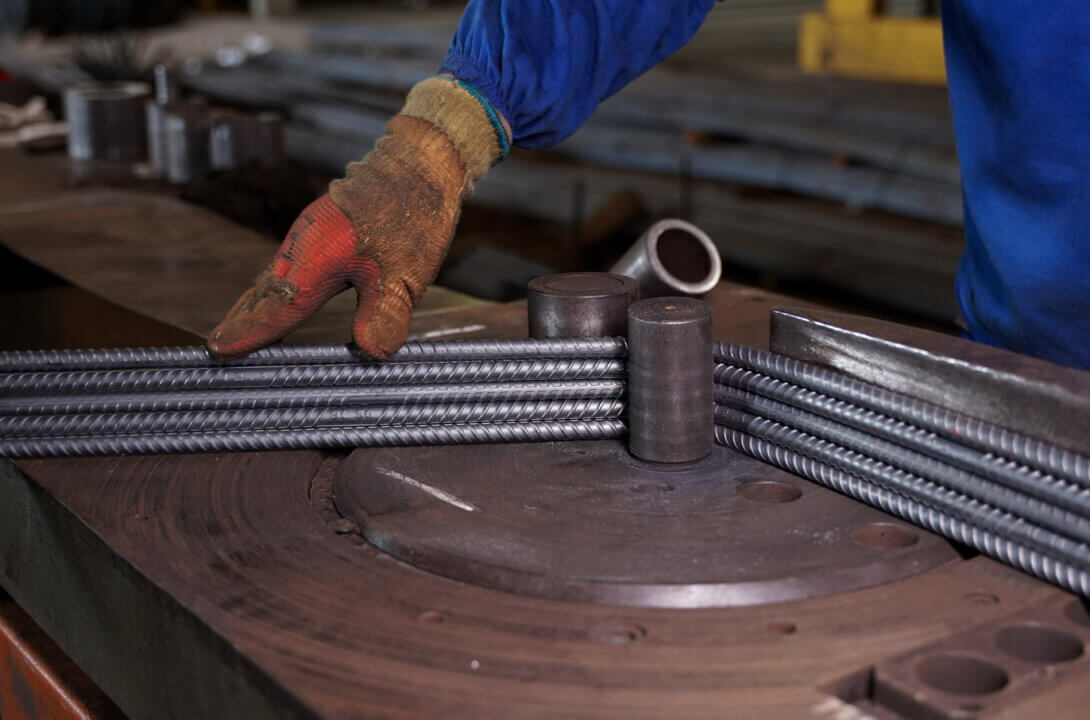
THE steel resistance is largely responsible for enabling the use of this material in various industries. Furthermore, because it is versatile and can be applied for a variety of purposes, there are obviously different types of steel.
These have their mechanical characteristics (strength, hardness, ductility, among others) adjusted according to the demands of each task. Do you see how there are many particularities surrounding steel that need to be understood?
Therefore, we've prepared this post to explain what steel strength is, its advantages, why you should care, and much more. Continue reading to learn more!
This refers to the material's ability to resist plastic deformation or rupture when subjected to external loads. In other words, steel's strength can be tested through tension, compression, torsion, or bending without the material failing. These circumstances occur:
This characteristic is crucial for ensuring the safety, durability, and performance of many applications that commonly use steel, such as engineering, industry, and transportation. Learn about some of them!
THE steel It is frequently used in the construction of structures such as buildings, bridges, wind turbines, and offshore platforms. In these cases, steel strength is crucial to ensuring the structural safety and stability of buildings.
Thus, the strength of CA-50 steel often brings benefits, so much so that it is commonly used in construction, especially in delicate structural applications. This is the case for those that present serious consequences if failure occurs, such as overpasses, bridges, wind turbines, oil and gas platforms, etc.
Steel is used in many machinery and equipment applications, such as gears, axles, springs, and chassis. Steel strength is crucial to ensure the durability and performance of these components.
Steel is used in many vehicles, including cars, trucks, trains, and airplanes. Steel's strength is essential for improving the safety and performance of these vehicles under dynamic loads, such as acceleration, braking, and impact.
Steel is used in many applications in the oil and gas industry, such as pipelines, offshore platforms, and storage tanks. Steel's strength helps ensure the safety and reliability of components under extreme conditions, such as corrosion, high pressure, and high temperatures.
Steel is a metal alloy composed of iron and a combination of other alloying chemical elements (carbon, nickel, molybdenum, chromium, etc.). Therefore, its properties can be altered according to the modification of the concentration of each of these alloy components.
For example, the addition of carbon (mainly), molybdenum and silicon to steel is directly associated with increased mechanical strength. In other words, these elements improve the material's performance, especially under stresses that demand the steel's resistance to compression and tension.
However, a balance analysis must be carried out, since it is possible, after the addition of these binders, to achieve a steel with high mechanical strength. However, it will also be brittle, as it will have low ductility and, consequently, little impact tolerance.
As we've seen so far, there are several benefits to using durable steel. Check it out!
Steel's tensile strength is crucial for certain activities. In addition to this quality, it also has resistance to extreme temperatures and high pressure, for example. All are relevant conditions. Imagine the cylinder of a locomotive engine: it's impossible to manufacture such equipment with a material without high mechanical strength.
After all, it's a part designed to require as little maintenance as possible. Therefore, high-strength steel ensures the efficiency and functionality of a component, even in extreme conditions (such as a combustion chamber).
Another advantage of steel's strength is its low maintenance requirements. This is because high-strength steel also provides good durability to parts.
Therefore, the material can withstand repeated and high loads without permanent deformation or fatigue. This means the material can have a long service life compared to weaker steels.
Thus, the use of resistant steels can reduce the cost maintenance and repair. The material is less prone to deformation or failure under load, meaning fewer repairs are needed.
Strong steel also performs well in certain processes. Learn more!
Joining parts using a welding process requires a material that can withstand intense temperatures without compromising its mechanical properties. This characteristic of resistant steel offers good weldability.
However, 1020 steel, for example, is not designed for high temperatures because it lacks significant thermal properties. Therefore, for high-temperature applications, opt for materials with other qualities, such as stainless steel.
There is equipment that, in order to be manufactured, needs to go through several plastic deformation processes (rolling, forging, stamping, etc.). In this sense, the strength of steel is also a positive point, as it allows it to undergo these manufacturing operations without breaking.
Metal corrosion is a natural process caused by the exposure of steel to the environment. However, this process can be delayed, especially by alloying elements that give the steel its steel good oxidation resistance (chromium and nickel).
Fortunately, some types of steel, such as stainless steel, have greater corrosion resistance due to the alloying elements.
Due to their greater strength, resistant steels can be used in thinner sections or with less material volume, resulting in lightweight and economical structures.
The use of resistant steels can reduce the amount of material required in a construction or product, saving energy during the production process.
As we've seen throughout this article, steel is present in both household appliances and engineering products for industry (mechanical, civil, food, etc.). Therefore, steel can now be considered a fundamental element for society, with strength being one of its main properties.
Therefore, it's easy to see how steel's strength parameters help enable its widespread application in industry. This is why this material is widely used worldwide, also impacting important financial issues. In this sense, we at Aço Cearense guarantee personalized service, efficient logistics and other advantages in offering steel.
Did you find the content interesting? Take the opportunity to read others blog contents And if you liked it, share this article on your social networks and help other people learn about the strength of steel!